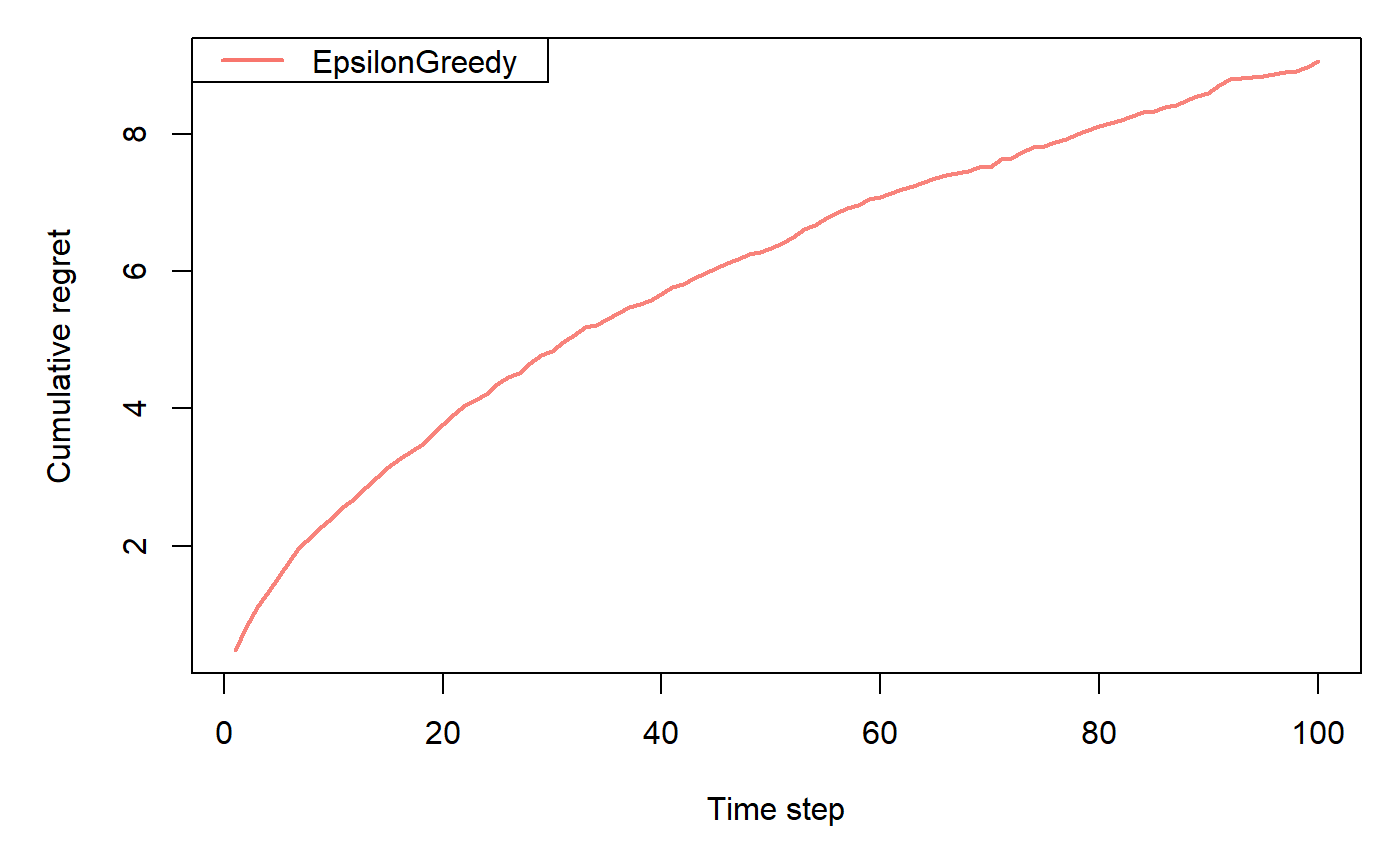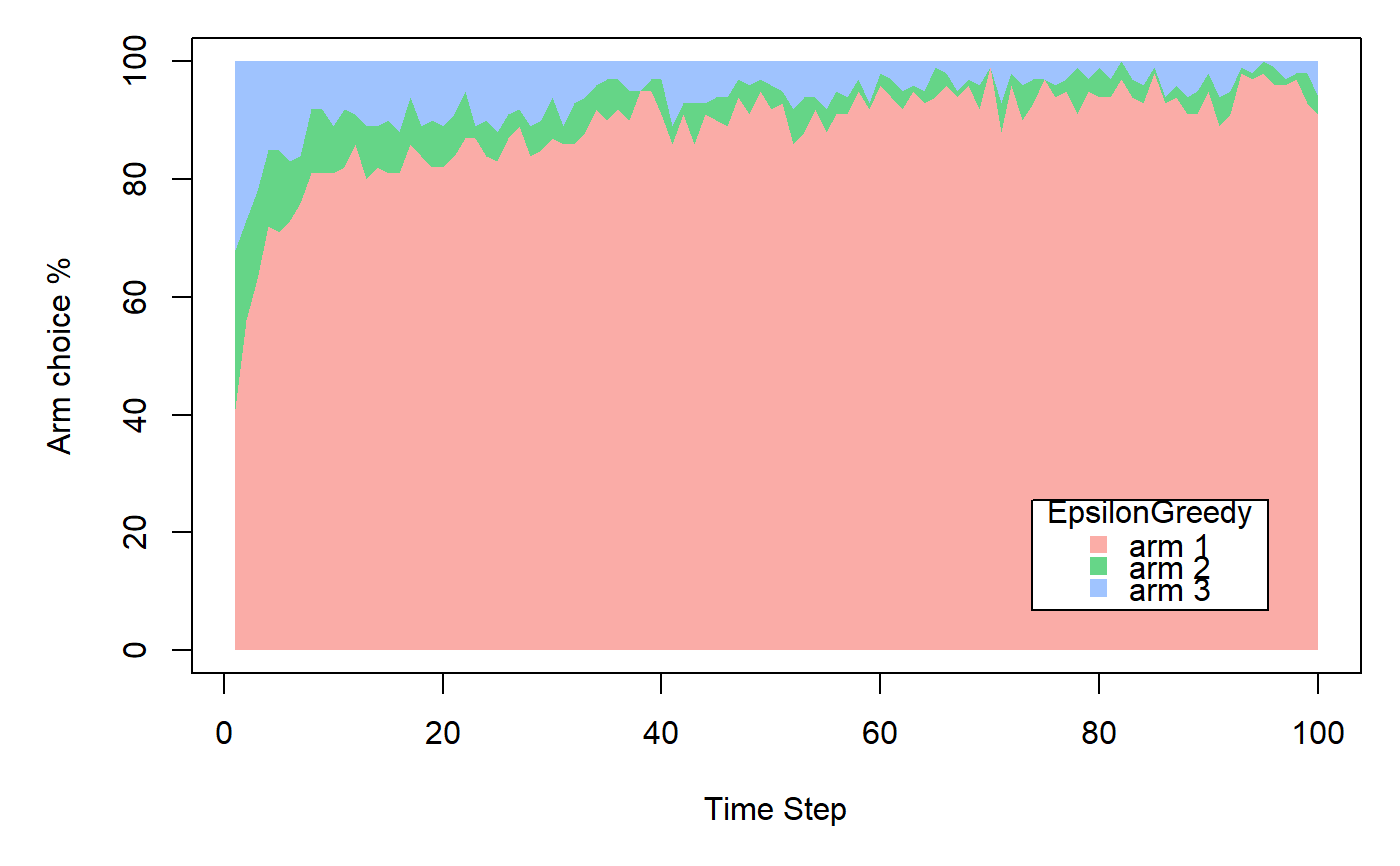EpsilonGreedyPolicy chooses an arm at
random (explores) with probability epsilon, otherwise it
greedily chooses (exploits) the arm with the highest estimated
reward.
Usage
policy <- EpsilonGreedyPolicy(epsilon = 0.1)
Arguments
epsilonnumeric; value in the closed interval (0,1] indicating the probablilty with which
arms are selected at random (explored).
Otherwise, EpsilonGreedyPolicy chooses the best arm (exploits)
with a probability of 1 - epsilon
namecharacter string specifying this policy. name
is, among others, saved to the History log and displayed in summaries and plots.
Methods
new(epsilon = 0.1)Generates a new EpsilonGreedyPolicy object. Arguments are
defined in the Argument section above.
set_parameters()each policy needs to assign the parameters it wants to keep track of
to list self$theta_to_arms that has to be defined in set_parameters()'s body.
The parameters defined here can later be accessed by arm index in the following way:
theta[[index_of_arm]]$parameter_name
get_action(context)here, a policy decides which arm to choose, based on the current values of its parameters and, potentially, the current context.
set_reward(reward, context)in set_reward(reward, context), a policy updates its parameter values
based on the reward received, and, potentially, the current context.
References
Gittins, J., Glazebrook, K., & Weber, R. (2011). Multi-armed bandit allocation indices. John Wiley & Sons. (Original work published 1989)
Sutton, R. S. (1996). Generalization in reinforcement learning: Successful examples using sparse coarse coding. In Advances in neural information processing systems (pp. 1038-1044).
Strehl, A., & Littman, M. (2004). Exploration via model based interval estimation. In International Conference on Machine Learning, number Icml.
Yue, Y., Broder, J., Kleinberg, R., & Joachims, T. (2012). The k-armed dueling bandits problem. Journal of Computer and System Sciences, 78(5), 1538-1556.
See also
Core contextual classes: Bandit, Policy, Simulator,
Agent, History, Plot
Bandit subclass examples: BasicBernoulliBandit, ContextualLogitBandit,
OfflineReplayEvaluatorBandit
Policy subclass examples: EpsilonGreedyPolicy, ContextualLinTSPolicy
Examples
horizon <- 100L simulations <- 100L weights <- c(0.9, 0.1, 0.1) policy <- EpsilonGreedyPolicy$new(epsilon = 0.1) bandit <- BasicBernoulliBandit$new(weights = weights) agent <- Agent$new(policy, bandit) history <- Simulator$new(agent, horizon, simulations, do_parallel = FALSE)$run()#>#>#>#>#>#>#>

